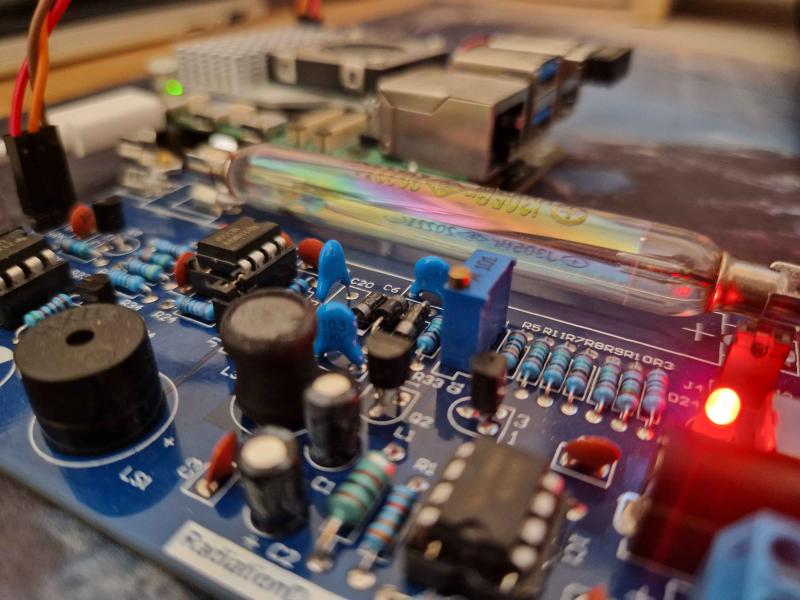

What will you need
- Geiger–Müller kit for example this one
- Raspberry pi - any model is fine but guide is written for raspberry pi 5. For older models you will need to make some adjustments
Hardware
Connect 5V to any 5V, Ground to any ground and VIN to GPIO4 (pin 7)
Rpi5 GPIO diagram

μSv/h Ratio
Check the tube that is installed in your kit. In my case, I have J305. We need to calculate μSv/h ratio based on the tube’s sensitivity. For J305, almost everyone is using the wrong coefficient/ratio of 0.00812037037037. Here is the formula I used, together with a source elaborating why 0.0081 is wrong: J305 has 25 CPM
1 / (25 * 60 / 8.77) = 0.00584666666667
Software
I am using Raspbian OS. If you have a different OS, commands may differ.
Required files
Navigate to this repository and clone it.
In documentation folder, you can find more detailed information about how everything works and values used in calculations
Issues & pre-req
Install flask
| |
If you got permisisons error, use sudo
If you get a 404 error, make sure index page is in the “templates” folder. It is case sensitive. The structure should be as follows:
Project
geiger.py
templates
index.html
M4011 tube
The manufacturer’s documentation lists the M4011, which has the same specs as the J305.
SSL
ssl_context=('cert.pem', 'key.pem') can be replaced by ssl_context='adhoc' if you dont have the keys
GPIO problem
RPi 5 has issues with GPIO. Remove the current GPIO library using:
| |
Then install lgpio:
| |
If you have installation problems, use this (but it could break system packages, or you can use a virtual environment):
| |
Run the script
Simply run geiger.py to start measuring:
| |
Then navigate to 127.0.0.1:80/index to see the chart
